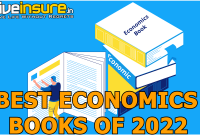Alex Azoury doesn’t like to admit it, but he didn’t respect online degrees as much as traditional degrees before the COVID-19 pandemic. Now, he’s changed his thinking.
“I am much more likely to take a remote degree more seriously now than I was a year ago,” said Azoury, founder of Home Grounds, a coffee education website. “I now realize how wrong I was and I imagine a lot of other employers are feeling the same.”
Fully online degrees have gotten a bad rap over the years, made worse by shady diploma mills and predatory for-profit colleges. There’s a perception that distance education is second best to campus-based learning because it doesn’t occur in a classroom.
But the prolonged switch to remote learning during the pandemic, along with the steady rise in online degrees and certifications since the mid-2000s, is challenging that notion.
Education was among the many industries that had to adapt to COVID-19 and offer online-only options to prevent the spread of the virus. When the pandemic was at its worst, every university effectively became an online university.
Meanwhile, most businesses shifted to remote work, depending on similar technology to what’s used for digital learning. Suddenly, employers needed employees who could function well in a remote environment.
Skeptics who were once against hiring candidates with fully online degrees have changed their minds. One recent survey found that hiring managers are more likely to hire applicants with online education now than before the pandemic.
Are you more likely to hire applicants with online education since the pandemic?
FutureLearn survey of 1,006 hiring managers
The rapid shift in thinking coincides with long-term growth in online education. Between 2013-2020, the number of students taking exclusively online courses rose from 2.6 to 3.4 million.
All this begs the question: Has the pandemic leveled the playing field between online and traditional degrees? We asked employers, professors, and school officials how they feel about online degrees since the pandemic started.
Has the Pandemic Changed Your Perception of Online Degrees?
Yes
—
Phil Ollenberg, assistant registrar, Bow Valley College
“Early on in this public health crisis, enrollment leaders saw perceptions of online learning from students, parents, and employers dramatically low[er] – in part because of the last-minute adaptations needed to bring in-person teaching online… Over the past fourteen months, quality and caliber has risen significantly, and a number of reports are showing perceptions of online college and university studies have improved along with it.”
—
Willie Greer, founder, The Product Analyst
“Now that everyone is doing school online, I think that it’s a valuable consideration that businesses start seeing the strength of an online degree. I would usually think it’s not that advisable to hire people with online degrees because their form of education seems different, and usually not all higher education institutions offer online programs, but the pandemic did change a lot about that perception.”
—
Janelle Owens, human resources director, Test Prep Insight
“Perceptions around online degrees are definitely shifting as a result of COVID. I think many hiring managers used to question the veracity of online degrees given the nature and infrastructure of online education, but COVID has helped to shape that opinion. People now realize that online education can be just as effective as in-person classes and, in fact, can often be more efficient and streamlined. I think the prevailing winds around online degrees have definitely shifted in the last year.”
Yes, but…
—
Siddhartha Gupta, CEO, Mercer | Mettl
“We are transitioning to a space of online degrees’ acceptance. The education sector is undergoing massive changes globally, and the student community is also tech-savvy and digitally native to make this transition. But we have to understand that it’s a continuum, and we are slowly moving in that direction. A wider and [easier] acceptance of the credibility and authority of online degrees will take its sweet time.”
—
Matthew Gilbert, lecturer of marketing, Coastal Carolina University
“The widespread shift to remote learning in response to COVID-19 has demonstrated the value of online learning, strengthening its perception for those organizations that understood its value and establishing its potential for others that had previously questioned its competence.
“However, the quality and reputation of the school offering an online option are important to evaluate. Individuals should consider programs with an established, on-campus program at a non-profit university that later expanded to an online platform, either as a separate initiative or as a blended learning option.”
—
John Davis, marketing manager, Passion Plans
“I do think I’ve gotten more open toward hiring someone from an online degree, but I’ve definitely also asked people why they chose the degree they did.”
No
—
Andrea Ahern, vice president, Mid Florida Material Handling
“Just like traditional degrees, the value of online degrees is based heavily on the school that issues it. The COVID-19 pandemic hasn’t really changed my opinion. In general, I value a traditional degree over an online degree. There are cases where I would value a top online degree over a bottom-tier traditional program, but you have to look at it on a case-by-case basis.”
—
Rick Hoskins, founder, Filter King
“I have been online and in marketing for many years now and always approached online degrees with a pinch of salt. As with everything on the internet, you need to check and verify it. My opinion remains the same in regards to online degrees.”




